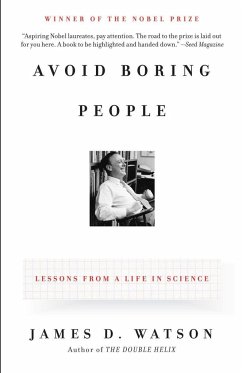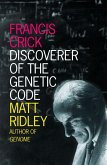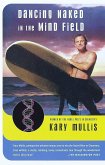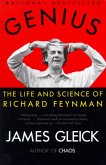From Nobel Prize-winning scientist James D. Watson, a living legend for his work unlocking the structure of DNA, comes this candid and entertaining memoir, filled with practical advice for those starting out their academic careers. In Avoid Boring People, Watson lays down a life's wisdom for getting ahead in a competitive world. Witty and uncompromisingly honest, he shares his thoughts on how young scientists should choose the projects that will shape their careers, the supreme importance of collegiality, and dealing with competitors within the same institution. It's an irreverent romp through Watson's colorful career and an indispensable guide to anyone interested in nurturing the life of the mind.
Bitte wählen Sie Ihr Anliegen aus.
Rechnungen
Retourenschein anfordern
Bestellstatus
Storno




